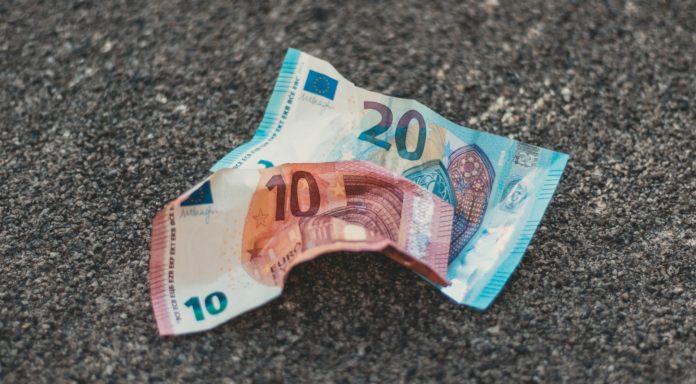The pound dropped steadily versus the euro on Monday. Brexit uncertainty weighed on the pound, whilst the euro moved higher on dollar weakness. The pound euro exchange rate hit a low of €1.1205.
| What do these figures mean? |
|---|
| When measuring the value of a pair of currencies, one set equals 1 unit and the other shows the current equivalent. As the market moves, the amount will vary from minute to minute.h If the euro amount increases in this pairing, it’s positive for the pound. Or, if you were looking at it the other way around:1 EUR = 0.87271 GBP In this example, €1 is equivalent to approximately £0.87. This measures the euro’s worth versus the British pound. If the sterling number gets larger, it’s good news for the euro. |
Th pound was under pressure again on Monday as Brexit uncertainty continued to dominate investors’ minds. UK Prime Minister Theresa May bowed to pressure from MP’s to release an overview of the 43 page legal advice document concerning Brexit. The document highlights some uncomfortable points which are unlikely to help Theresa May push the Brexit deal through Parliament. The overview of the legal document pointed out that should the backstop provision be triggered, the only way out would be a trade deal with the EU, which could take years to agree. The backstop is one of the most contentious issues in the Brexit deal. MP’s believe the full legal document could show to UK is indefinitely tied to the EU.
Brexit uncertainty was also seeping into UK economic data which unnerved investors. UK manufacturing activity picked up in November to 53.1, up from 51.1 in October and well ahead of analyst’s expectations of 51.7. However, looking deeper into the numbers, they show that the increase in activity was down to increased domestic demand. The most likely reason for this is firms stockpiling in the case of a no deal Brexit.
| Why is a “soft” Brexit better for sterling than a “hard” Brexit? |
|---|
| A soft Brexit implies anything less than UK’s complete withdrawal from the EU. For example, it could mean the UK retains some form of membership to the European Union single market in exchange for some free movement of people, i.e. immigration. This is considered more positive than a “hard” Brexit, which is a full severance from the EU. The reason “soft” is considered more pound-friendly is because the economic impact would be lower. If there is less negative impact on the economy, foreign investors will continue to invest in the UK. As investment requires local currency, this increased demand for the pound then boosts its value. |
Today investors will look towards a speech by Bank of England Governor Mark Carney. Recent speeches by Mark Carney have been hard hitting earnings over the impact of Brexit. Mark Carney is unlikely to change his tone heading towards the Brexit vote.
Construction pmi will also attract attention between headlines.
Euro Gains On Dollar Weakness (again)
A weaker dollar helped lift the euro in the previous session, however gains were capped by soft manufacturing activity data. The euro often trades inversely to the dollar. The dollar fell on Monday following a trade war truce between US and China. As a result, the euro was in demand.
The gains in the euro were kept in check by release of eurozone manufacturing purchasing managers index (pmi). The data showed the manufacturing activity in the eurozone continued to soften in November. The pmi dropped to 51.8 from 52, its softest reading since August 2016. This is yet another sign that the eurozone economic growth is losing momentum, which will unnerve investors.
| Why does poor economic data drag on a country’s currency? |
|---|
| Slowing economic indicators point to a slowing economy. Weak economies have weaker currencies because institutions look to reduce investments in countries where growth prospects are low and then transfer money to countries with higher growth prospects. These institutions sell out of their investment and the local currency, thus increasing supply of the currency and pushing down the money’s worth. So, when a country or region has poor economic news, the value of the currency tends to fall. |
Eurozone inflation at wholesale level, in the form of producer price index (PPI) will be in focus today. Analysts expect inflation to remain steady at 0.5% increase month on month.
This publication is provided for general information purposes only and is not intended to cover every aspect of the topics with which it deals. It is not intended to amount to advice on which you should rely. You must obtain professional or specialist advice before taking, or refraining from, any action on the basis of the content in this publication. The information in this publication does not constitute legal, tax or other professional advice from TransferWise Inc., Currency Live or its affiliates. Prior results do not guarantee a similar outcome. We make no representations, warranties or guarantees, whether express or implied, that the content in the publication is accurate, complete or up to date. Consult our risk warning page for more details.
This article was initially published on TransferWise.com from the same author. The content at Currency Live is the sole opinion of the authors and in no way reflects the views of TransferWise Inc.





